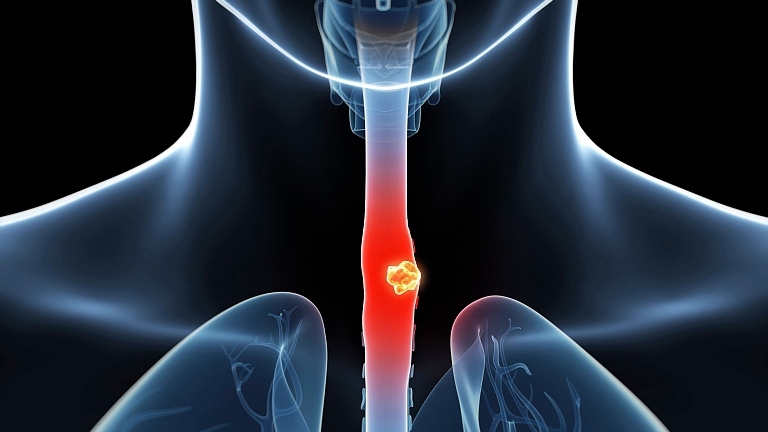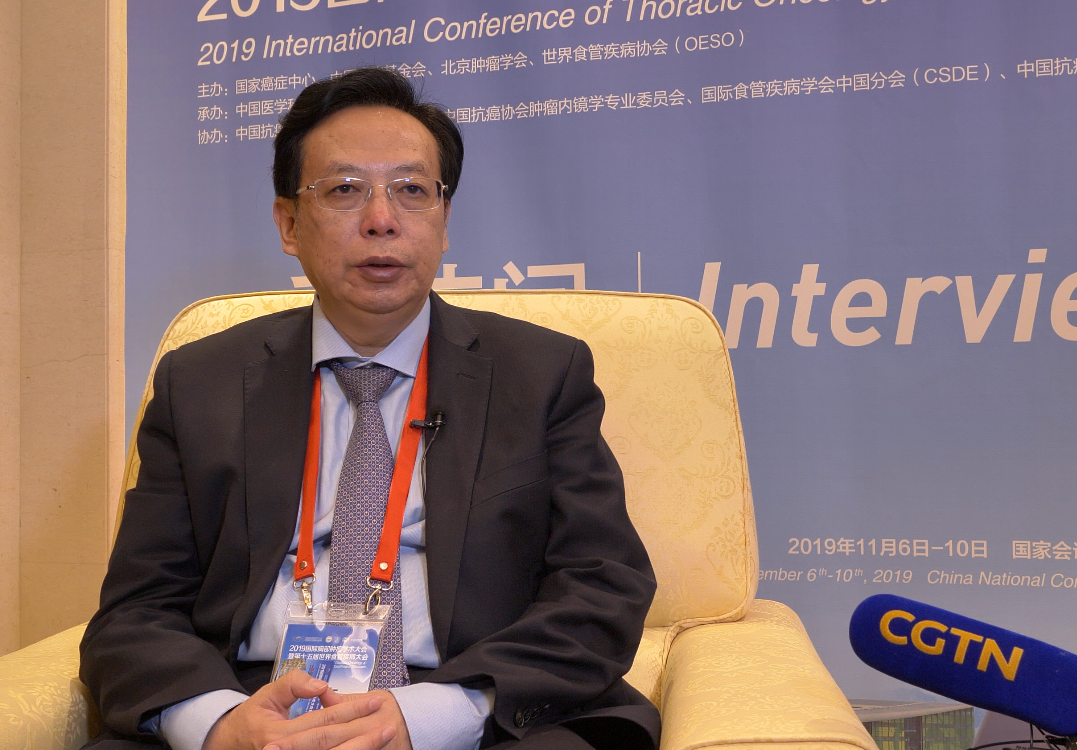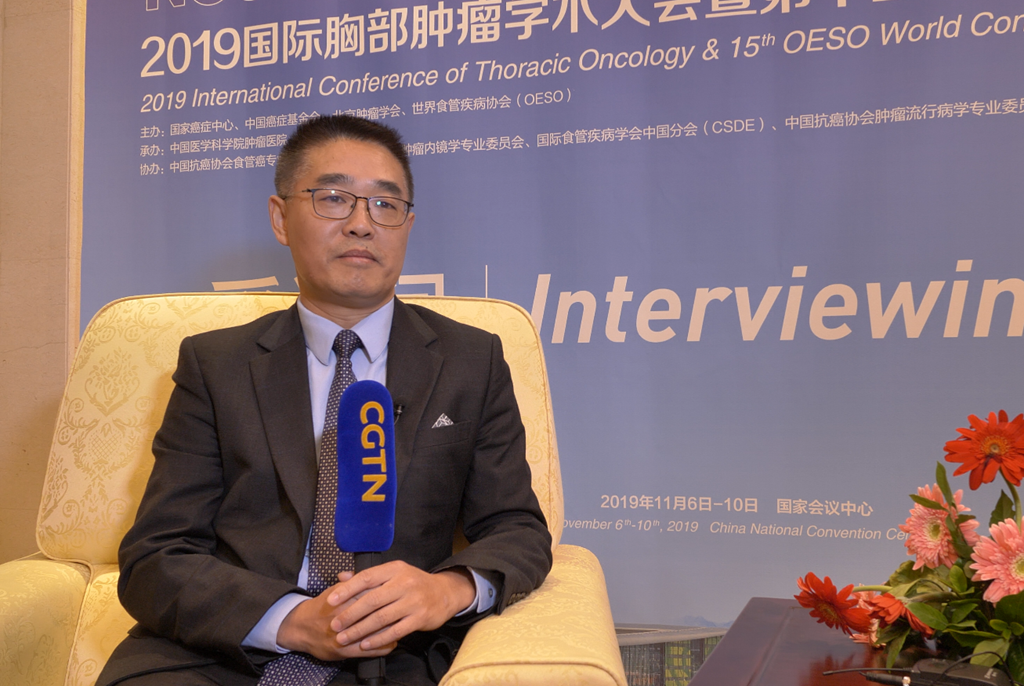03:04

In January, a report was released by China's National Cancer Center (NCC) which indicated the severe situation of esophageal cancer in China.
According to the report, esophageal cancer is the sixth most common form of cancer, and the fourth most frequent cause of cancer deaths in the country.
"There are about 338,000 people diagnosed with esophageal cancer in China every year, and about 258,000 people die from it," Xue Qi, director of thoracic surgery at Cancer Institute and Hospital of Chinese Academy of Medical Sciences, told CGTN at the OESO World Conference of Esophageal Diseases held in Beijing last week.

Xue Qi, director of thoracic surgery at Cancer Institute and Hospital of Chinese Academy of Medical Sciences. /CGTN Photo
Xue Qi, director of thoracic surgery at Cancer Institute and Hospital of Chinese Academy of Medical Sciences. /CGTN Photo
The primary causes of esophageal cancer in China are related to the environment including one's lifestyle and dietary habits. Other causes include genetics.
Spicy food has been considered as one of the major causes of esophageal cancer in China.
"Spicy food shouldn't be a big problem," said Dr. Luke Chen, president of the World Organization for Specialized Studies on Diseases of Esphagus, or OESO. "But we like to drink extremely hot tea and hot beverages, particularly in rural areas, and also a lack of nutrients, vegetables and fruit intake are all contributing factors to esophageal cancer."
A country with high morbidity
"China has a large population and our population is also aging, and esophageal cancer primarily affects people over 60 years old," said Dr. Chen, adding that the number of esophageal cancer patients in urban areas has decreased in the past decades due to the economic development in China.
"But we still have a huge population of esophageal cancer patients in rural areas."

Dr. Luke Chen, president of World Organization for Specialized Studies on Diseases of Esphagus, or OESO. /CGTN Photo
Dr. Luke Chen, president of World Organization for Specialized Studies on Diseases of Esphagus, or OESO. /CGTN Photo
Chen described esophageal cancer as a "disease of the poor" because of the lack of awareness and comprehensive medical conditions in rural areas.
The high-incidence areas of esophageal cancer are Henan, Hebei, and the Taihang Mountain area in Shanxi Province.
Xue told CGTN that the morbidity and mortality of esophageal cancer have been decreasing, especially in high-incidence areas.
"We have been conducting nutritional intervention in high-incidence areas, and educating people there to adopt healthy lifestyles," he said.
"In 2005, only a dozen of provinces in China had screening bases. In 2012, the number increased to hundreds, and it's still increasing," said Xue, adding that by performing gastroscope to high-risk groups, lots of early-stage patients have been detected.
'It is time for China to make contributions'
Chen told CGTN that OESO has been working with NCC to develop a pilot center in esophagology, which will help European countries, the U.S., and African countries to train young surgeons.
"In addition to that, we want to collaborate with Chinese researchers in further understanding the molecular mechanism of this disease and develop better treatment," he said, adding that holding the OESO World Conference outside of Europe for the first time in China, is another form of international cooperation.
Chen said that China has benefited a lot in esophageal cancer research from international cooperation in the past years. "It is time for China to make contributions to other countries."
(Top image via VCG)